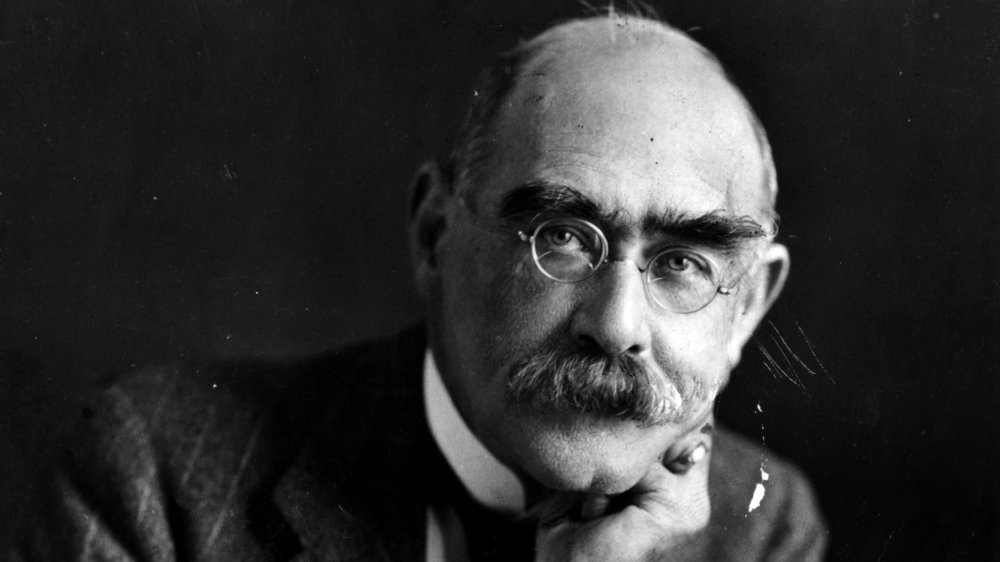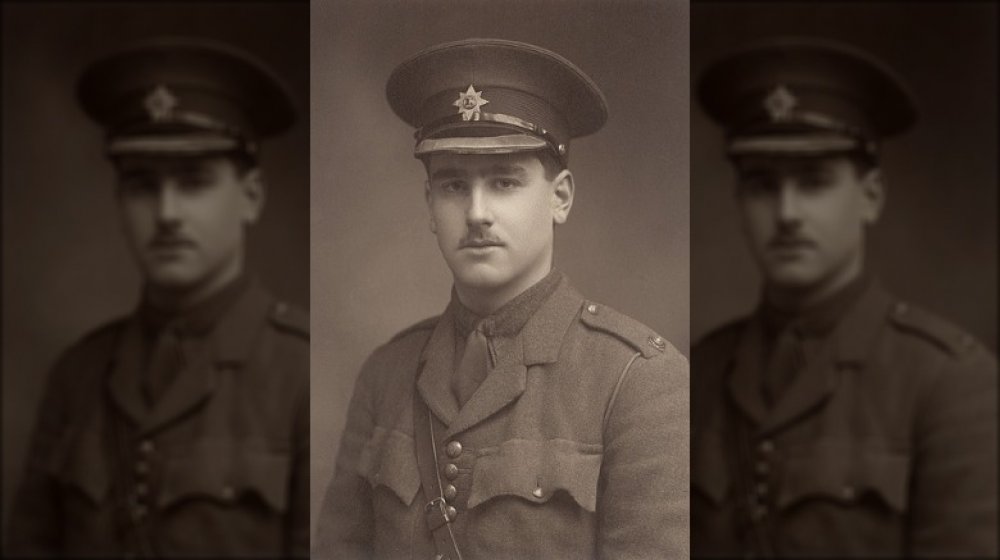The Tragic Death Of Rudyard Kipling's Son, John
You might not know the name "Rudyard Kipling," but you've probably encountered his work after it was run through the movie production process that is the Hollywood sausage-maker. Kipling was the English wordsmith — journalist, novelist, short story writer — who gave us the foundations for The Man Who Would Be King, Kim, Gunga Din, and perhaps most importantly, The Jungle Book. That tale of a boy raised by wolves would inspire multiple films, with the most notable two being Disney's animated versions from 1967 and 2016.
In addition to inspiring a whole bunch of movies, Kipling was the poet of the British Empire. He spent his formative years in India and returned there as a journalist. He collected the folk stories he'd been told as a child and material from the soldiers he'd met during his newspapering days, and in 1907, he picked up a Nobel Prize in Literature for his efforts. But Kipling was also the main cheerleader for British imperialism and the common, frequently undereducated, and often unwashed troops who helped make that possible. He was a fan.
When World War I began, Kipling did everything he could to aid what he saw as his country's righteous cause against barbarism. He assisted the Red Cross, visited the wounded, and even toured the front as a war correspondent. And he worked very hard to see that his only son, John, would serve their country's noble war effort as an officer — something Rudyard himself had never done.
The fate of Rudyard Kipling's son
According to The Independent, John Kipling himself wanted to serve, but he was extremely near-sighted, and so he was rejected for service by both the Army and the Navy. But his father had friends in places high enough to land John a commission as a second lieutenant in the Irish Guards. The year was 1914. John was all of 17 years old. And as a teenager, John led his men into the Battle of Loos. By the time the carnage was over, no progress had been made, no ground was gained, and British casualties totaled over 50,000, more than twice those of Germany. One of those casualties was John Kipling.
Officially, he was declared injured and missing, and his parents were frantic. With what amounted to Rudyard's pro-British propaganda pieces, the Kiplings were horrified at how John might suffer as a prisoner. John's parents searched field hospitals, studied battle reports, and interviewed John's surviving comrades, all to no avail. Kipling was ravaged by grief in the years to come. Tragically, his quest for answers was never satisfied. It wasn't until 1992 that researchers claimed to have identified his remains, but even that is questionable. Sadly, Rudyard Kipling died in 1936.

